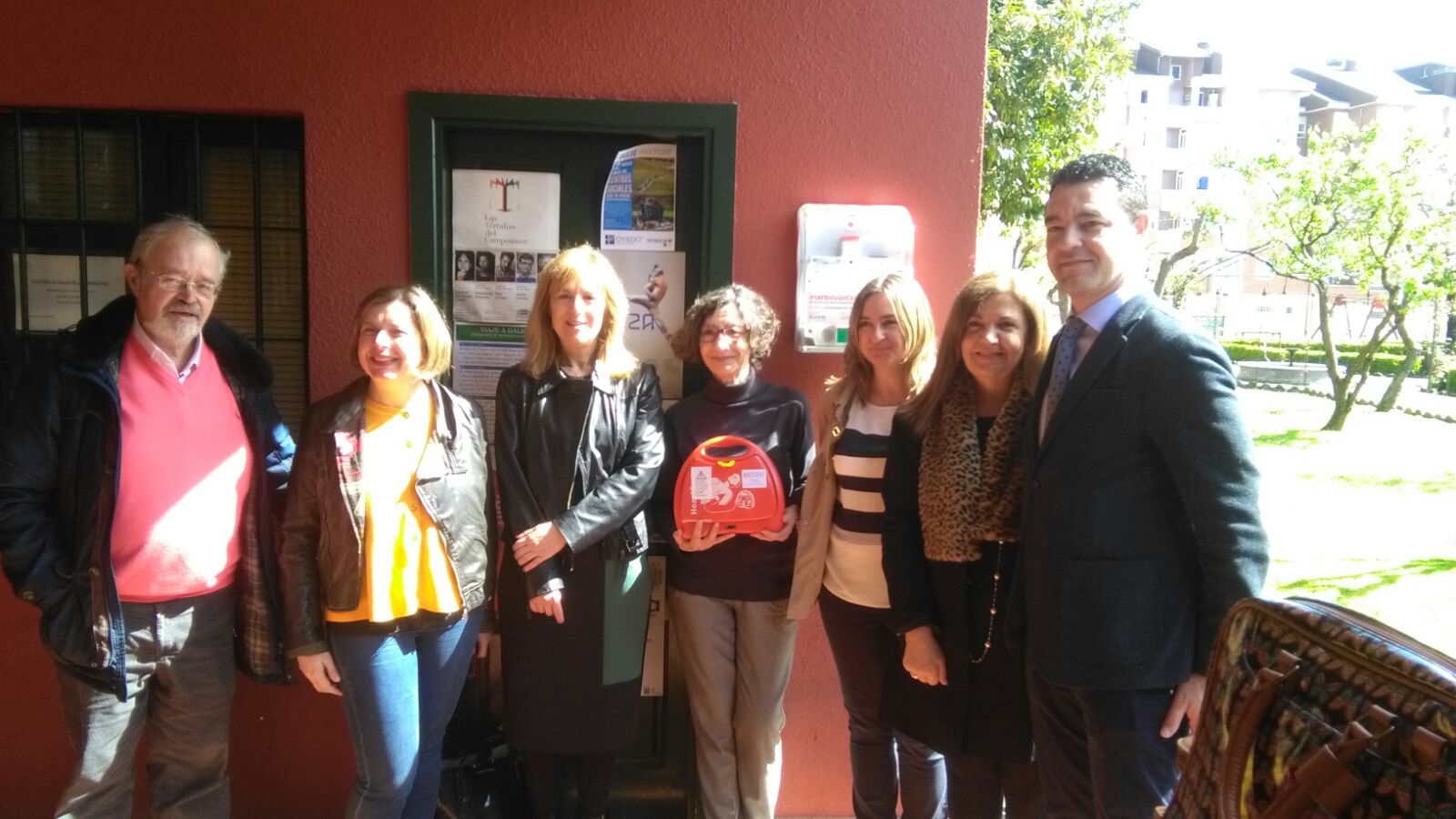16/04/2018
ASTURIAS HAS FOUR NEW DEFIBRILLATORS
Two defibrillators have been installed in Oviedo and another two in Gijon, the cities where more kilometers have been covered thanks to the solidarity of their citizens.
Asturias is one of the only seven Autonomous Communities where the availability of defibrillators in public places is compulsory 1.
In its first edition, ''Heartbeats that add up'' has covered 70,000 kilometers and installed 20 defibrillators in 6 different Autonomous Communities.

Thanks to the kilometers covered and donated by physicians and pharmacists in the first edition of the ''Heartbeats that add up'' virtual solidarity race promoted by ESTEVE and Asociación España Salud, Asturias has four new defibrillators: two in Oviedo and two in Gijon. These new devices will increase the number of cardiac-protected areas in Asturias and will contribute to increase the probabilities of survival in case of cardiac arrest.
In Oviedo, the two defibrillators have been installed at the Centro Social El Cortijo and at the Centro Social of Trubia. In Gijon, the two new cardiac-protected areas are the Edificio Gota, the headquarters of the Fundación Municipal de Servicios Sociales; and the Centro de Cultura Antiguo Instituto ,the headquarters of the Fundación Municipal de Cultura, Educación and Universidad Popular.
Defibrillators are the most effective treatment in case of cardiac arrest. Indeed, the probabilities of surviving a cardiac arrest episode decrease by 10% with each passing minute. Around 40,000 Spaniards die of sudden death each year. However, more than 4,500 lives would be saved every year if a defibrillator and staff minimally trained in resuscitation were available beside every fire extinguisher 1.
Since 2016, the Principality of Asturias has regulations whereby the installation of defibrillators in public places is compulsory (as it is in Andalusia, the Canary Islands, Catalonia, the Basque Country, Madrid, and Valencia). Accordingly, defibrillators must be available in malls of more than 2,500 square meters; in airports and commercial ports, bus or train stations in cities of more than 50,000 inhabitants and in train or bus facilities with a daily flow equal to or higher than 2,000 people; in buildings, facilities and premises housing public shows and recreational activities with a capacity for more than 750 people; and in sports facilities with a capacity equal to or higher than 5,000 people.
In the first edition of ''Heartbeats that add up'', physicians and pharmacists walked, ran, swam or cycled 70,000 kilometers, which resulted in 20 defibrillators. These devices were installed in the 6 Autonomous Communities where more kilometers had been covered. Hence, in addition to the 4 defibrillators installed in Asturias (2 in Gijon and 2 in Oviedo), 5 have been installed in Extremadura (3 in Caceres and 2 in Badajoz), 4 in Navarre (Pamplona), 4 in Andalusia (in the province of Seville), 2 in the Basque Country (San Sebastian), and 1 in Castilla León (Zamora).
Second edition of ''Heartbeats that add up'': another 30 new defibrillators
The second edition of this virtual solidarity race was recently completed: 100,000 kilometers were covered in four months thanks to the participation of physicians, pharmacists and, on this occasion, also citizens, who turned their sporting activity into defibrillators through the www.latidosquesuman.com website.
As a result of this second edition, another 30 new defibrillators will be installed across the country, specifically in the Autonomous Communities that covered more kilometers in an initiative devised so save lives and promote healthy habits among the population.
Currently, Spain ranks worst in the number of defibrillators installed in the European Union: around 10,000 as compared to 100,000 in France, 80,000 in Germany and 50,000 in the United Kingdom1. There is still little awareness and knowledge, and a lack of initiatives to promote the use of these devices. Only seven Autonomous Communities in Spain have regulations that make defibrillators compulsory in public places. The goal of ''Heartbeats that add up'' is to increase the number of cardiac-protected areas across the country.
1 According to Asociación España Salud www.españasalud.org



